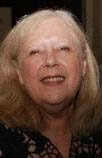I was speaking at a writing/publishing seminar arranged by my publisher at Borders Books. The place was packed, and everyone there had an interest in some type of writing, with the majority of those present interested in fiction. My topic was “Research and Fact-Checking.”
Someone asked how we go about writing a book. Besides my publisher Frank Gromling, founder of Ocean Publishing, poet Michelle Leavitt (Powow River Anthology) and novelist Victor DiGenti (Windrusher series) were part of the speaking team that day. So each of us offered our own perspectives.
I shared the story of an interview with Nicholas Sparks. Years ago, I did an article about him for a now defunct Internet site. But I remember what he told me. He said when he starts a new book, he sketches it on a single page. He goes from there.
I have come to realize that I’m a spurt writer. Often I hop from document to document. I may have a poem open and an article for a magazine in addition to the file for my new nonfiction book.
I do prepare an outline for a book, but it’s a loose one and basically covers the points or topics I’ll write about. When the rough draft is ready, I print it and edit the hard copy. There’s an amazing reaction to seeing a 50,000 word document printed. For one thing, it just looks so big compared to a manuscript of 50-60 poems.
Ironically, poems are the hardest to write. They take longer. They have to cook longer, in my opinion.
Articles and essays are the most immediately rewarding. For one thing you get to see them in print quicker. I usually take an essay through five or six drafts.
I tend to think and compose within the writing process. I start out with one perspective and it may change, it will definitely deepen, and it will morph into something else entirely as the writing process progresses.
Victor DiGenti gave a great tip to fiction writers. He does a resume of each of his characters.
Many of the questions asked that day rested on self-publishing. I’ll write about that next time.
Each writer develops his or her own process. It's like voice: every writer has a different one.
What’s up: I’ll be reading with Dorothy K. Fletcher and Rize Cole at the Library of Congress for Poetry at Noon on December 5. A new essay will be out soon in Christian Science Monitor, and a story about a young writer who won a national award is forthcoming in the Florida Times Union. A sonnet is part of the new Letters to the World anthology (Red Hen) from the WOMPO poetry group online. The group was started by Annie Finch in 1997. And I’ll have an essay in the hardcover book Faces of Freedom edited by Rebecca Pepin.
Subscribe to:
Post Comments (Atom)

2 comments:
When people ask me how I write, I really want to say that I don't know. As you say, each of us has our process and our voice. I find those things to be a natural outgrowth of me--and just as hard to explain as telling somebody who's never seen a bicycle how to ride one.
--Malcolm
Hi,Malcolm,
Thanks so much for reading, and for sharing your own ideas. I really enjoy hearing about how others write. Please visit again--best, Kay B. Day
Post a Comment